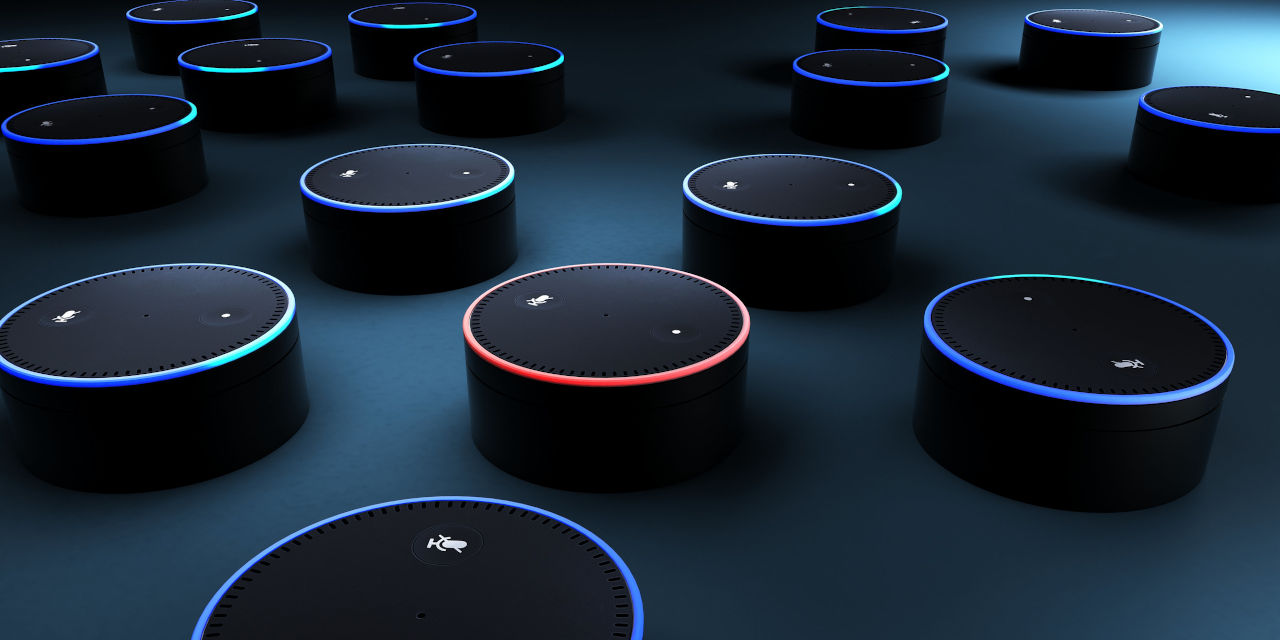By Jack Cumming
This is a funny story. And the joke is on me. I attended the LeadingAge Convention in Atlanta which is three time zones different from where I live in California. My wife stayed home. Here’s where it begins to get funny in an ironic sort of way.
A Rude Awakening
We have a number of Alexa devices in our apartment, three of which are Echo Show devices. We have them set with reminders. One reminder, every day at 7:15 AM Pacific Time, is to take Vitamin B12. For those who don’t know how this works, each morning at 7:15 AM, voices everywhere in our apartment shout out, “Take Vitamin B12.”
Somehow, Alexa found out that I was in Atlanta. Alexa, in her infinite wisdom, decided to change the announcements to East Coast Time. Imagine how my wife felt, snuggled deep in her bed, when every morning promptly at 7:15 AM East Coast Time Alexa shouted at her, precisely at 4:15 AM Pacific Time, “Take Vitamin B12.” That was a shock, but afterward, we were able to laugh at it. Thank goodness Alexa is flawed. We’re just not ready to have our humanity replaced with a robotic intruder.
Amazon has been coming to LeadingAge Conferences for a few years. I remember meeting a team from Amazon checking out technology vendors several years ago. This year, though, they were there with a splash. There was a huge booth, complete with a bedroom (I’m not sure the significance of that, though they may have been thinking nursing home rather than what it made me think).
Clandestine Booth
Intriguingly, the name “Amazon” appeared nowhere on the booth. It was “branded” as “Alexa Smart Properties.” It’s anybody’s guess why they didn’t want to say their name. My guess is that Amazon has disrupted so many businesses that they didn’t want to invoke fear in the hearts of senior living operators. Of course, it wasn’t Amazon that disrupted our sleep, so maybe Alexa, after all, is the disrupter to be feared.
Incidentally, one would have thought, after Alexa was able at one stroke to reset all our “reminders” to East Coast time from Pacific, that she would be able to set them all back. Not so. On my first night home after the trip, I too got to experience the voice of Alexa at the unwelcome hour of 4:15 AM. We finally went into the Alexa app on my iPhone to reset each reminder one by one. By the way, Alexa, why do you insist on people having a smartphone before you will deign to take notice of them?
Our Alexa Journey
We brought Alexa, aka Nina Rolle, into our community in 2015 for those residents who had their own Wi-Fi networks. Our provider was early to offer community-wide Wi-Fi, but the provider wouldn’t then allow Alexa devices on the community network for fear that the voice technology would use too much bandwidth. Later, the provider increased bandwidth and allowed residents to have Alexa. With that provider acceptance, Alexa deployment mushroomed.
Here’s how it worked. The residents in the Resident Technology Committee bought a number of Amazon Dots and distributed them free to any resident who wanted to try it out. Those residents who then wanted to keep Alexa made a donation to keep the trial program rolling forward. With time voluntary Alexa deployment, supported by residents helping residents, approached 70% of the residential living units.
Alexa Goes B2B
Now Amazon is initiating an effort to sell its services directly to providers, as a business market approach, so that providers can control the content that residents receive. Along with the booth at LeadingAge, Amazon’s “Alexa Smart Properties” announced a series of initiatives for providers to customize the experience for their communities. One can infer, for instance, from a glance at the website that K4Connect will be offering many of those services. I’m sure that Touchtown and others are taking notice.
My best guess is that the word “properties” in the initiative’s name, “Alexa Smart Properties,” refers to individual facilities that a provider might own, say, a Continuing Care Retirement Community or a Life Plan community. Incidentally, Amazon recently hired Ginna Baik, who had been Strategic Business Development Manager for Senior Care at CDW Healthcare, to lead business development for Amazon Alexa Smart Properties for Senior Living. Importantly, Amazon is now able to offer a HIPAA-compliant Alexa experience for telehealth and other sensitive communications.
The Drop-In Feature
My personal involvement with Alexa as a senior living resident has been very positive. Particularly valuable is the “drop-in” feature. That feature must be authorized by the Alexa users at both ends of a connection. I use it with my sister who lives in another senior living community. I simply say, “Alexa, drop in on Carol,” and it automatically sounds a warning of company coming for my sister, and without my sister having to answer or to do anything else, we are connected for a video visit.
That aspect works well particularly for couples who are separated by cognitive decline in a spouse. During the pandemic, even spousal in-person visits were forbidden. Deploying Echo Show devices, however, allowed those love connections, strengthened over many years, to continue. Sadly, not all providers allowed Echo Show devices in their memory care and nursing areas for fear that families might interfere with staff or that observed interactions might result in liability. For those couples who were connected by the Echo Show Drop-In feature, it was the spark that kept love alive.
Forgotten When Needed
As much as I love that drop-in feature, I forgot all about it when I was at the Atlanta Conference. I’m a tech nerd but my wife is decidedly not. She’s game, though, and she’s a willing participant in my gadget experiments. It took a long time to persuade her to have an iPhone, and she finds the icon-filled home screen bewildering. It was a lot for her to learn to just answer a phone call since it required a confusing slide motion. To help, I got a Panasonic Cordless Answering machine that connects to her iPhone by Bluetooth so she can answer cell calls as though they were landline.
While in Atlanta I missed seeing her, and I wanted to Facetime, so I called her cellphone. Her iPhone was in her desk area, though, and she answered on a handset in the living room. We talked but all I saw were the Venetian blinds behind her desk. Despite all my love of Alexa, and despite all the Echo Shows that we have everywhere, I forgot Alexa in that moment when she might have saved the day. I thought of her only after flying home when I was awakened by Alexa at 4:15 AM with a reminder to take Vitamin B12. For older people, whether they’re in senior living or not, Alexa, especially the drop-in feature, can work much better than Apple’s Facetime.
How About a Wake-Word Television?
Thus, it’s exciting that Amazon was also in Atlanta though not under its original A to Z name (note the letters that the Amazon logo smile line connects and compare that with what Amazon sells). One of my favorite moments at the Alexa booth was positive because of its sheer humanity. One of the Alexa pros was demonstrating an Alexa-enabled TV to prospective provider purchasers. Of course, the TV only works when it’s turned on and that requires the TV’s remote. Note that you can’t use drop-in on a TV because they’re not Alexa first. TVs have to be turned on, and they usually lack a microphone or camera.
The humanity of the moment came into play when that TV remote slipped out of the demonstrator’s hand and fell behind the chest of drawers in the bedroom. Now that’s the kind of thing that happens all the time in senior living. The demonstrator ably dropped to the floor, quickly reached under the bureau to retrieve the remote, and was back on his feet in an instant. I laughed silently to myself thinking that the demonstrator’s agility was drop-in on steroids. The demonstration continued apace, but I also realized that no resident would ever retrieve that remote. It would be unlikely that staff or family or a fellow resident or anyone else would ever find where that remote had gone until movers emptied the bedroom.
In a world of wonderful gadgets, we’re still human in the end. Click here for a video introducing Amazon’s new Alexa Smart Properties program for senior living. Click here for the Amazon announcement.








